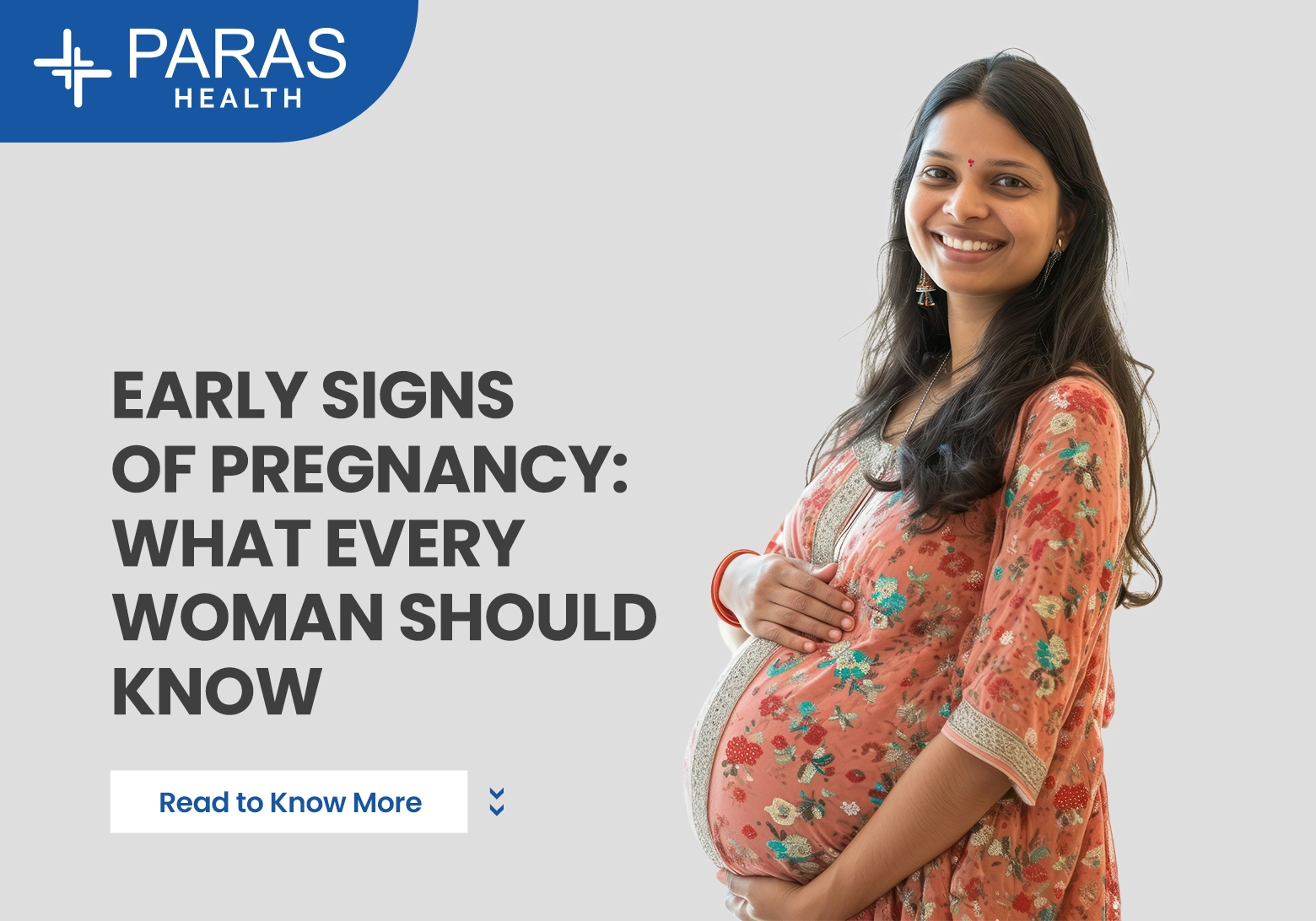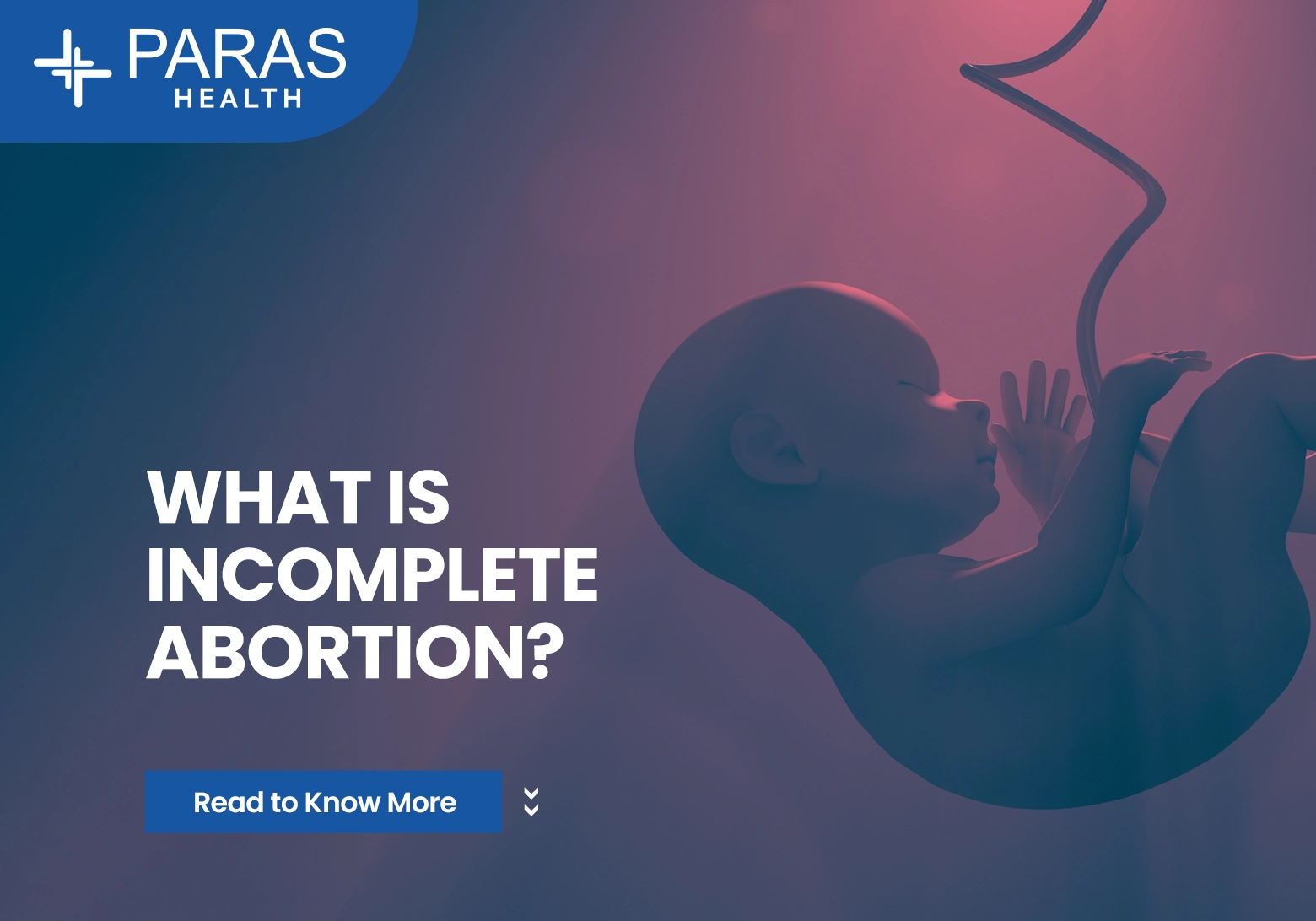PCOD vs PCOS – What Is the Difference?
Oct 24, 2025
PCOD vs PCOS – What Is the Difference?
Many women today hear the terms PCOD and PCOS and instantly feel confused. They sound similar, have overlapping symptoms, and both relate to the ovaries — but they are not the same. If you’ve ever wondered, “What is the difference between PCOD and PCOS?” — this guide breaks it down clearly and simply.
Let’s understand both conditions, their causes, symptoms, and treatments, and see how they affect your body differently.
What Is PCOD?
PCOD stands for Polycystic Ovarian Disease. In this condition, a woman’s ovaries release many immature or partially mature eggs during each cycle. These eggs can accumulate and form small cysts — fluid-filled sacs — inside the ovaries. Because of this imbalance, the ovaries start producing slightly more androgens (male hormones) than normal. The excess hormones interfere with the natural menstrual cycle and cause visible symptoms such as acne, hair growth, or irregular periods.
How Common Is PCOD?
PCOD is very common. Around one in every three to four women of reproductive age may experience it at some point. The good news: PCOD is not dangerous and is often reversible with simple lifestyle changes.
Common Symptoms of PCOD
- Irregular menstrual cycles
- Acne or oily skin
- Mild weight gain or difficulty losing weight
- Hair thinning or mild hair growth on the face
- Bloating or abdominal discomfort
Common Causes of PCOD
- Stress and poor sleep
- Unhealthy diet and sedentary lifestyle
- Hormonal changes
- Genetics (runs in families sometimes)
Treatment for PCOD
Most women with PCOD can manage it naturally by improving lifestyle:
- Eating a balanced diet (low sugar, high protein, high fiber)
- Regular exercise and yoga
- Stress management
- Maintaining healthy body weight
If needed, your doctor may suggest mild medication to balance hormones and regulate periods.
Key Fact: PCOD is quite common and usually reversible with lifestyle changes. It’s not considered a serious disorder.
What Is PCOS?
PCOS stands for Polycystic Ovary Syndrome — and the word syndrome already tells you it’s more serious than PCOD. PCOS is a metabolic and hormonal disorder that affects the entire body — hormones, metabolism, fertility, and even heart health. In PCOS, the ovaries produce high levels of male hormones (androgens), and the body often becomes insulin resistant. This means the cells don’t respond properly to insulin, causing excess insulin in the bloodstream. The combination of high insulin and high androgens interferes with ovulation and leads to long-term health risks.
Common Symptoms of PCOS
- Missed or delayed periods for months
- Heavy bleeding when periods occur
- Excessive hair growth (on face, chest, or abdomen)
- Hair fall or male-pattern baldness
- Acne and dark skin patches (around neck or armpits)
- Difficulty conceiving
Common Causes of PCOS
- Genetic predisposition: runs in families
- Insulin resistance: leads to increased fat storage and weight gain
- Hormonal imbalance: higher levels of LH and androgens
- Lifestyle factors: poor diet, lack of physical activity, chronic stress
Treatment for PCOS
PCOS often requires a combination of:
- Medical treatment (hormonal therapy or insulin-sensitizing drugs)
- Strict diet and regular exercise
- Stress reduction and sleep improvement
- Weight management
- Continuous follow-ups with a gynecologist or endocrinologist
Key Fact: PCOS can increase the risk of type 2 diabetes, heart disease, and infertility if left untreated. But with the right care, symptoms can be effectively managed
PCOD vs PCOS – The Key Differences
| Aspect |
PCOD (Polycystic Ovarian Disease) |
PCOS (Polycystic Ovary Syndrome) |
|
Nature |
Hormonal imbalance causing cysts in ovaries |
Metabolic and hormonal disorder affecting the whole body |
|
Severity |
Mild and more common |
More severe and complex |
|
Hormonal Imbalance |
Slight increase in androgens |
High levels of androgens |
|
Ovulation |
Usually happens, though irregular |
Often absent or delayed |
|
Fertility Impact |
Can conceive with lifestyle management |
May need medical help to conceive |
|
Associated Conditions |
Usually limited to ovarian health |
Linked to insulin resistance, obesity, diabetes |
|
Treatment Approach |
Lifestyle correction |
Medical treatment + lifestyle modification |
In short:
PCOD is a hormonal imbalance in the ovaries, whereas PCOS is a full-body endocrine disorder with long-term health effects.
Causes and Risk Factors
Both PCOD and PCOS are linked to a mix of genetic, hormonal, and lifestyle factors.
Common causes include:
- High insulin levels in the body
- Poor diet (excess sugar and processed food)
- Lack of physical activity
- Chronic stress and poor sleep
- Family history of PCOD or PCOS
These factors trigger hormonal imbalances and affect how your ovaries function.
Symptoms – How to Identify the Difference
|
Symptoms |
PCOD |
PCOS |
|
Periods |
Irregular but still occur |
Often absent for months |
|
Hair Growth |
Mild |
Excessive (face, chest, back) |
|
Acne |
Mild to moderate |
Severe and persistent |
|
Weight Gain |
Moderate |
Significant, especially around the abdomen |
|
Fertility |
Possible with minimal support |
May require medical help |
Diagnosis – How Doctors Identify PCOD and PCOS
Diagnosis usually includes:
- Blood tests to measure hormone and insulin levels
- Ultrasound scan to look for cysts in ovaries
- Medical history of menstrual cycles and symptoms
Key difference:
In PCOD, ovaries look slightly enlarged with multiple immature eggs,
while in PCOS, there are fewer ovulations and more hormonal imbalance markers.
Treatment and Management
The treatment for PCOD and PCOS focuses on balancing hormones and improving lifestyle.
1. Lifestyle Changes
- Maintain a healthy weight
- Exercise regularly (30–45 minutes daily)
- Eat more vegetables, lean proteins, and whole grains
- Avoid refined sugar and fried foods
- Sleep 7–8 hours daily
2. Medical Treatment
Doctors may prescribe:
- Hormonal pills to regulate periods
- Insulin-sensitizing drugs (like metformin) for PCOS
- Fertility medications for conception
- Acne or hair growth control medicines
3. Natural Remedies
- Yoga and meditation help balance stress hormones
- Herbal teas (like spearmint) may help reduce androgen levels
- Avoid crash diets or extreme fasting
Remember: Both PCOD and PCOS are manageable conditions — early intervention is key.
PCOD vs PCOS and Pregnancy
Fertility is one of the most common concerns among women with PCOD or PCOS.
- PCOD: Ovulation still happens, so pregnancy is possible with minimal medical help.
- PCOS: Ovulation is often absent, but with hormonal therapy or assisted reproductive techniques, pregnancy can still happen.
Fact: Many women with PCOD or PCOS successfully conceive after treatment and lifestyle improvement.
Which Is More Dangerous – PCOD or PCOS?
Between the two, PCOS is more severe. While PCOD mainly affects the ovaries, PCOS impacts the entire endocrine system — hormones, metabolism, and fertility.
Untreated PCOS can increase the risk of:
- Type 2 diabetes and high cholesterol
- Obesity and hypertension
- Sleep apnea
- Anxiety and depression
- Endometrial cancer
PCOD, on the other hand, rarely leads to such complications and is often reversible through disciplined lifestyle correction
Diet and Lifestyle Tips for Managing PCOD and PCOS
Here’s what doctors and nutritionists often recommend:
Foods to Eat
- Whole grains (brown rice, millets, oats)
- Leafy greens and colorful vegetables
- Fruits with low glycemic index (berries, apple, pear)
- Lean proteins (eggs, tofu, pulses, fish, paneer)
- Healthy fats (nuts, seeds, olive oil, avocado)
Foods to Avoid
- Sugary drinks, white bread, pastries
- Fried and processed snacks
- Red meat and high-fat dairy
- Alcohol and caffeine in excess
Daily Habits
- Walk after every meal for 10 minutes
- Stay hydrated (8–10 glasses of water)
- Avoid skipping meals or crash diets
Prioritize mental health and adequate rest
Key Takeaways
- PCOD is a hormonal condition that’s reversible with lifestyle changes.
- PCOS is a metabolic disorder that requires medical and lifestyle management.
- Both can cause period problems, acne, and fertility issues, but early care can restore balance.
- Focus on healthy eating, movement, and regular medical checkups.
Conclusion
PCOD and PCOS might sound alike, but they differ in severity, causes, and long-term impact. While PCOD can be managed with lifestyle changes, PCOS demands medical attention to avoid future complications. The key is to listen to your body, consult a gynecologist early, and build a lifestyle that supports hormonal balance. With the right care, both PCOD and PCOS can be well managed — and you can live a healthy, confident life.
FAQs
What is the difference between PCOD and PCOS?
PCOD is a mild ovarian disorder, while PCOS is a severe hormonal and metabolic condition affecting the whole body.
Can PCOD turn into PCOS?
Not necessarily. PCOD and PCOS are different, but ignoring PCOD may worsen hormonal imbalance.
Which is more dangerous – PCOD or PCOS?
PCOS is more serious because it increases the risk of diabetes, obesity, and infertility.
Can PCOD or PCOS cause infertility?
Yes, both can affect fertility, but with treatment and lifestyle changes, many women conceive naturally.
Can PCOD and PCOS be cured naturally?
They can’t be fully “cured,” but symptoms can be managed effectively with a healthy diet, exercise, and medical care.
How do doctors diagnose PCOD and PCOS?
Through blood tests, ultrasound scans, and menstrual history to check hormone levels and ovarian cysts.
What diet is best for PCOD and PCOS?
A balanced diet rich in fiber, lean proteins, and low in sugar helps manage symptoms better.
Can PCOD/PCOS be controlled without medicines?
Yes, mild cases can improve with lifestyle management alone—exercise, diet, and stress control.
Does PCOD or PCOS cause hair loss and acne?
Yes, due to high androgen levels, both can cause acne, hair thinning, and facial hair growth.
Can I get pregnant if I have PCOD or PCOS?
Yes. Many women conceive successfully with timely treatment and proper medical guidance.



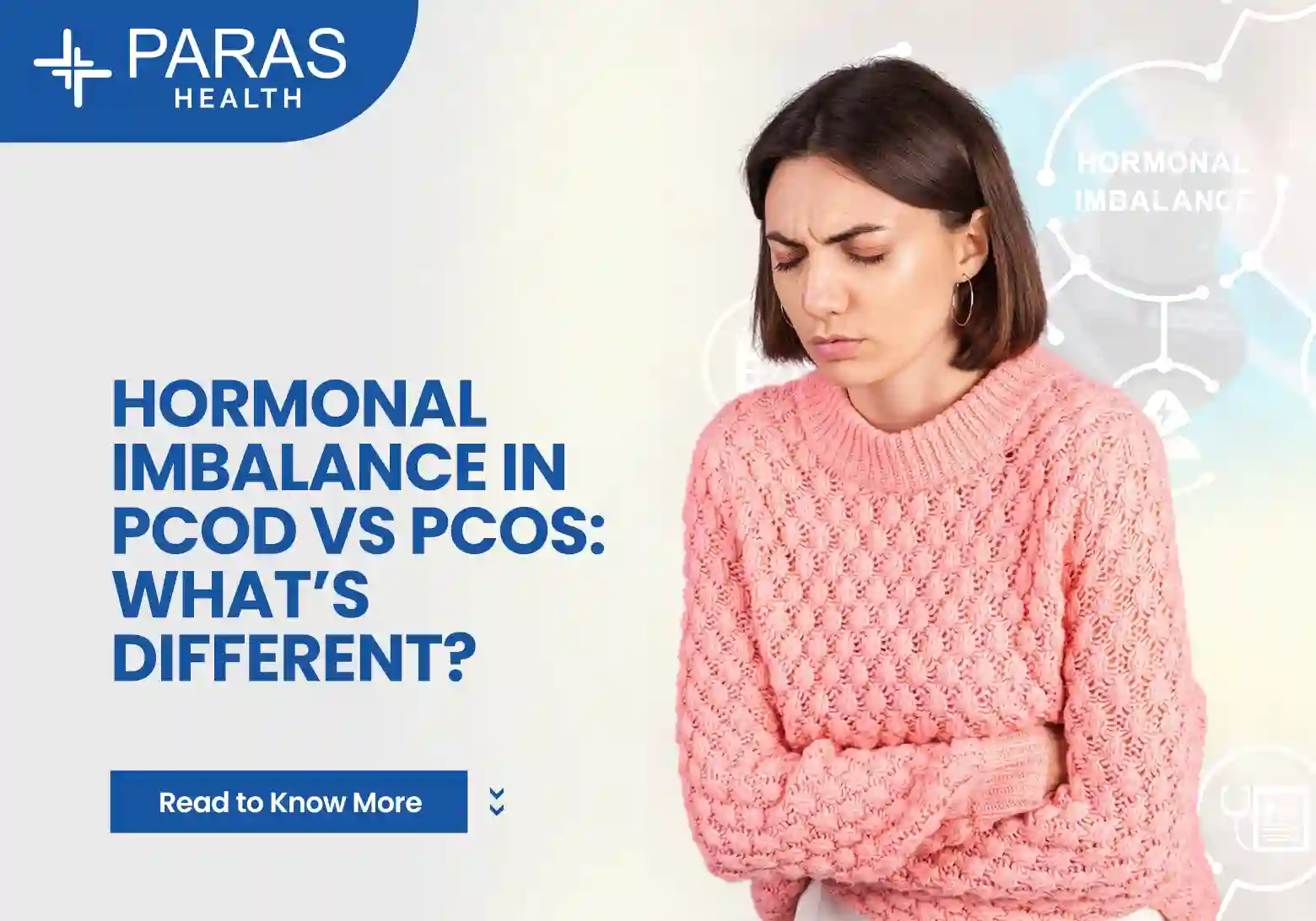
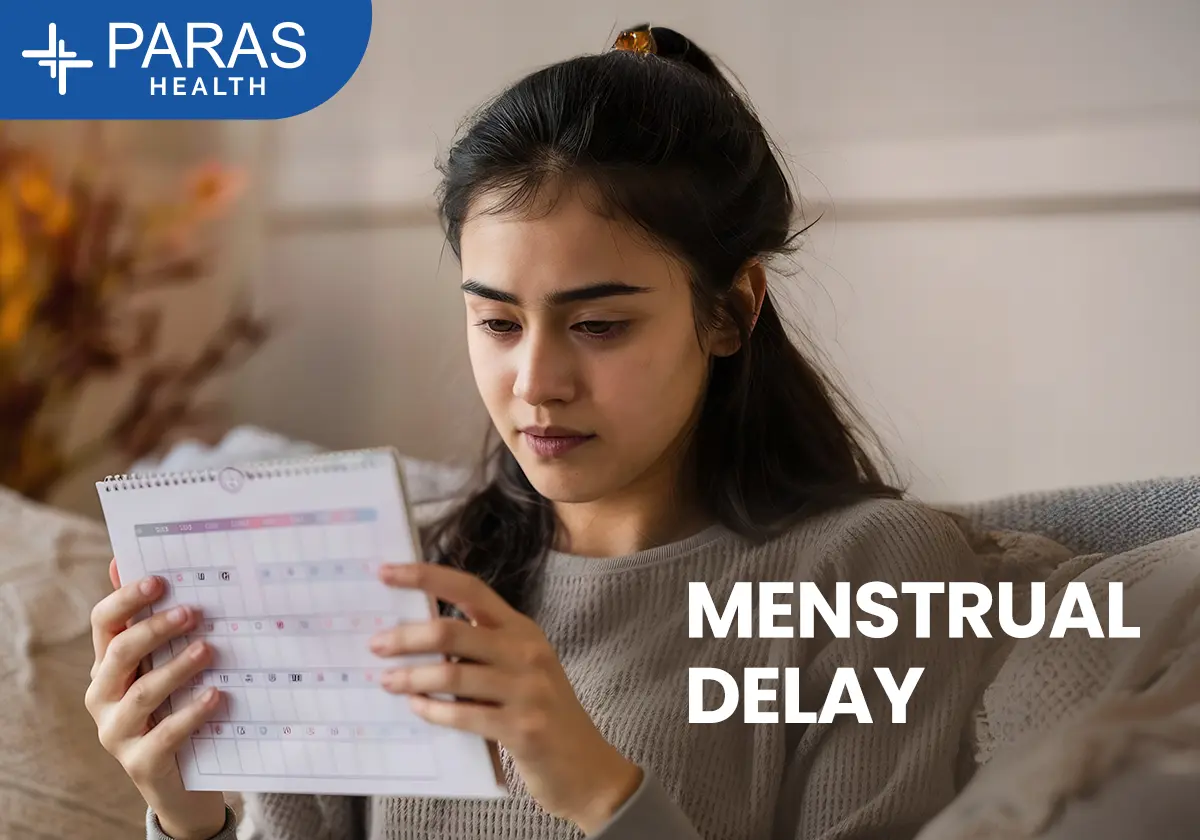

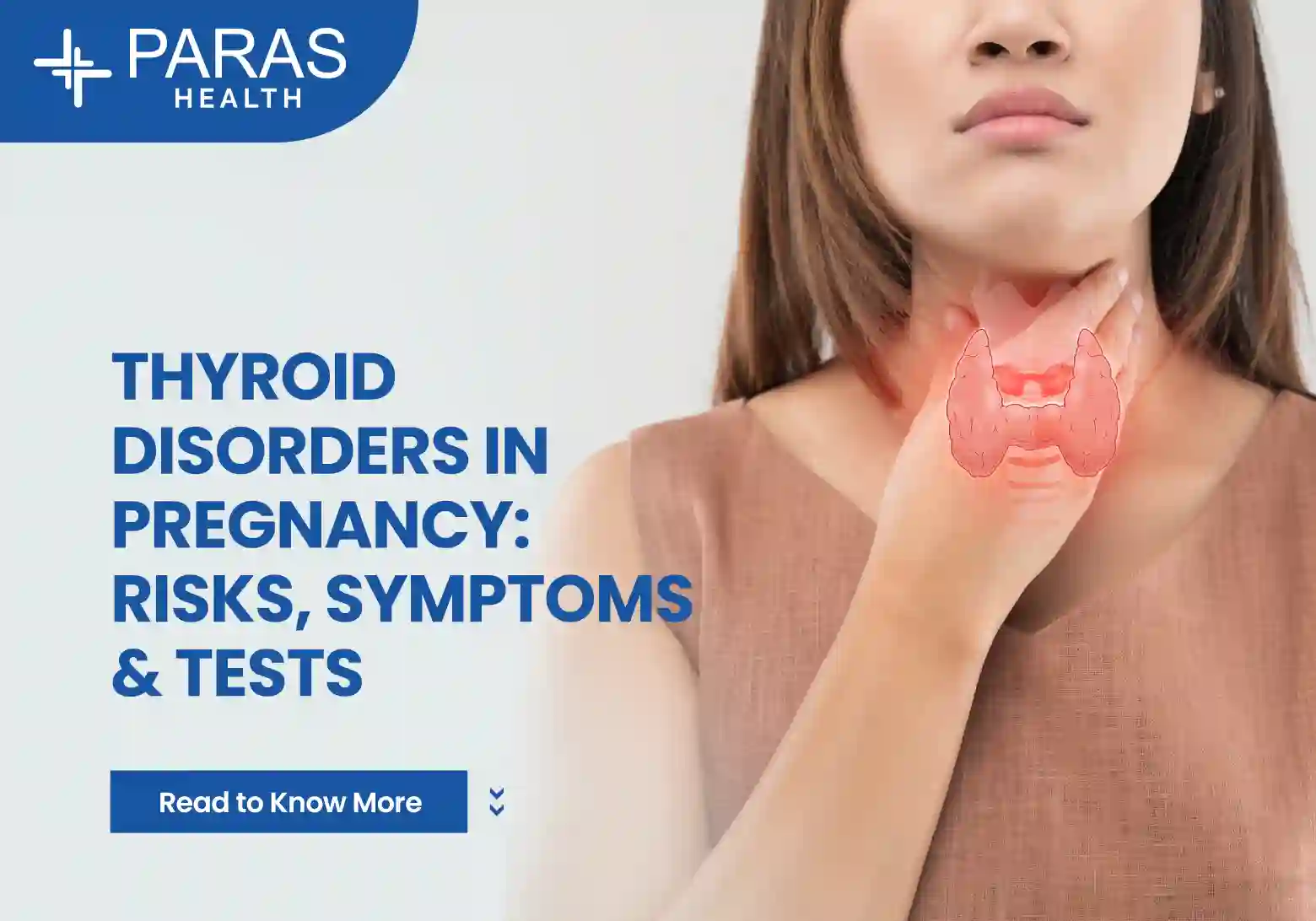
.webp)
